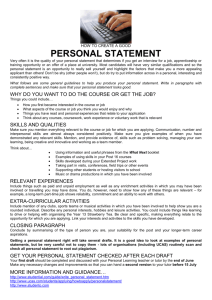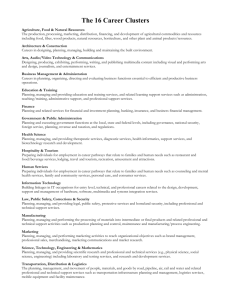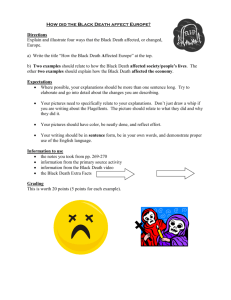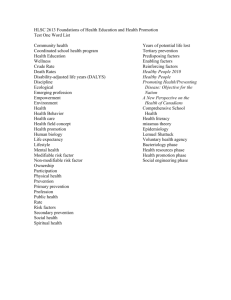Writing a Personal Statement
advertisement
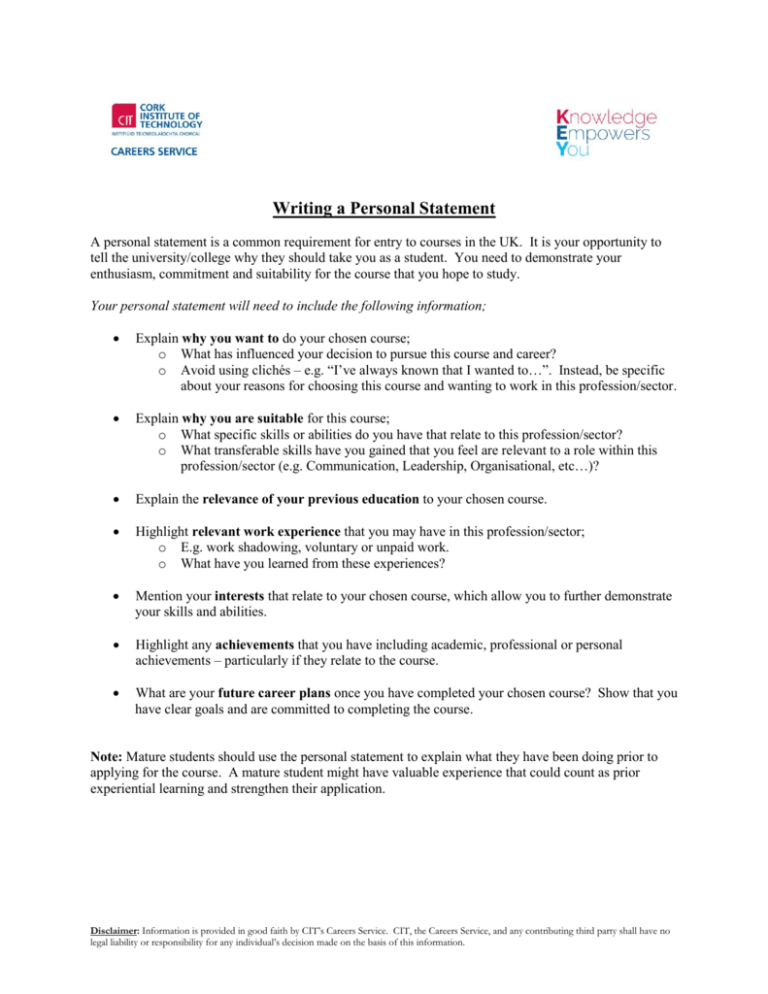
Writing a Personal Statement A personal statement is a common requirement for entry to courses in the UK. It is your opportunity to tell the university/college why they should take you as a student. You need to demonstrate your enthusiasm, commitment and suitability for the course that you hope to study. Your personal statement will need to include the following information; Explain why you want to do your chosen course; o What has influenced your decision to pursue this course and career? o Avoid using clichés – e.g. “I’ve always known that I wanted to…”. Instead, be specific about your reasons for choosing this course and wanting to work in this profession/sector. Explain why you are suitable for this course; o What specific skills or abilities do you have that relate to this profession/sector? o What transferable skills have you gained that you feel are relevant to a role within this profession/sector (e.g. Communication, Leadership, Organisational, etc…)? Explain the relevance of your previous education to your chosen course. Highlight relevant work experience that you may have in this profession/sector; o E.g. work shadowing, voluntary or unpaid work. o What have you learned from these experiences? Mention your interests that relate to your chosen course, which allow you to further demonstrate your skills and abilities. Highlight any achievements that you have including academic, professional or personal achievements – particularly if they relate to the course. What are your future career plans once you have completed your chosen course? Show that you have clear goals and are committed to completing the course. Note: Mature students should use the personal statement to explain what they have been doing prior to applying for the course. A mature student might have valuable experience that could count as prior experiential learning and strengthen their application. Disclaimer: Information is provided in good faith by CIT’s Careers Service. CIT, the Careers Service, and any contributing third party shall have no legal liability or responsibility for any individual’s decision made on the basis of this information. Tips: 1. Use standard, Times New Roman, size 12 font when writing your statement – do not use bold, italics or underlining. Write your statement in Microsoft Word first, and then copy and paste it into the application form. 2. The length of a personal statement may vary depending on the university or college but is usually no more than 4,000 characters (including spaces) or 47 lines of text (including blank lines). 3. Research the website of the university/college that you are applying to and use information where appropriate; o Read the mission statement – can you relate your own background and values to the values and ethos of the institution? o Does the university/college offer particular academic or extra-curricular activities that you are interested in or can contribute to? o Read the information provided about the course for which you are applying. It may provide an entry profile or explain what the university is looking for in their students and what qualifications or experience you'll need for the course. Explain how you match this profile in your statement. 4. Always elaborate on your skills – say how and where you developed these skills and give examples (e.g. demonstrate excellent communication skills in particular for teaching). 5. Use the ‘ABC’ rule when giving examples of your experience; A – Activity (State the task completed.) B – Benefit (What was the benefit of this task for you?) C – Cause (How can you relate this task and benefit to the cause i.e. the course/profession you wish to pursue?) 6. The UCAS and Studential websites provide useful guidelines and sample personal statements for reference; https://www.ucas.com/ucas/undergraduate/getting-started/when-apply/writing-personal-statement https://www.studential.com/personal-statement-examples NB: On completion read your personal statement carefully, paying particular attention to spelling and grammar. Ask a trusted person or a professional to also check it for you. Disclaimer: Information is provided in good faith by CIT’s Careers Service. CIT, the Careers Service, and any contributing third party shall have no legal liability or responsibility for any individual’s decision made on the basis of this information.

